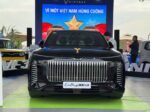Chinese smartphone manufacturer Xiaomi has unveiled its first-ever electric car. With a Chris Bangle-approved design, Porsche-like performance, and an impressive range, the midsize sedan will hit the market with a starting price of just 215,900 yuan ($29,900).
This undercuts the Tesla Model 3 by more than 30,000 yuan ($4,200). Even more impressively, despite the lower price, the SU7 boasts a minimum driving range of 700 km (435 mi), eclipsing the 606 km (377 mi) of the Tesla in China. Xiaomi CEO Lei Jun proudly claims that its sedan outperforms the Model 3 in 90 percent of benchmark tests.
Measuring 4,997 mm (196.7 in) long, 1,963 mm (77.3 in) wide, and 1,455 mm (57.3 in) high with a 3,000-mm (118.1-in) wheelbase, the SU7 will be available in three variants. The base model, priced at $29,900, is the standard RWD version. It rides on a 400-volt architecture, has a 73.6-kWh battery pack, and is powered by a 295-hp, 400-Nm electric motor. Providing a CLTC-rated range of 700 km (435 mi), it can add 350 km (217 mi) of range in just 15 minutes of charging.
The mid-tier trim is the SU7 Pro. It features a similar 400-volt architecture but with a larger 94.3-kWh battery pack. It retains the same 295-hp RWD powertrain as the base model. With a CLTC-rated driving range of 830 km (516 mi), it has a starting price of $34,000.
The top-of-the-line model is the SU7 Max. It boasts an 800-volt architecture and a 101-kWh battery pack that combines with dual electric motors to produce 663 hp and 838 Nm (619 lb-ft) of torque. This performance-oriented variant can accelerate from 0–100 km/h (62 mph) in just 2.78 seconds, reaching a top speed of 265 km/h (165 mph). It has a maximum CLTC-rated driving range of 800 km (497 mi) and a starting price of $41,500.
Xiaomi’s CEO admitted that each car will be sold at a loss, according to CNBC. The extent of the losses is unknown, but it has certainly captured the attention of buyers. Xiaomi claims that it received 50,000 orders within 27 minutes of opening sales.
While those orders were admittedly paid for with a token, it’s still an impressive feat. Xiaomi is entering a fiercely competitive EV market in China. Even so, the CEOs of several of the brand’s upcoming rivals were reportedly present at the SU7’s launch event. SCMP reports that Lei acknowledged the heads of companies like Xpeng, Nio, and Li Auto for helping Xiaomi avoid some potential pitfalls on the road to its first car.
As part of Xiaomi’s “Human x Car x Home” strategy to build an ecosystem of connected devices powered by its HyperOS operating system, the SU7 will be compatible with the company’s phones. However, it won’t just work with Xiaomi devices, as it will also feature Apple CarPlay and a built-in iPad.
Xiaomi also revealed some accessories for the SU7 at launch. In addition to a smartphone holder, buyers will be able to purchase custom sunshades for the front windows and an in-car refrigerator. Some accessories will be included with the purchase price.
The Chinese automaker says its driver-assistance technology will be available on highways and in cities in China starting in August. Tesla’s Autopilot is only available on highways in China, and FSD has yet to be released there. Deliveries of the Xiaomi SU7 are expected to start in April. The car will be produced at a factory where all “key steps” in the production process are fully automated. The company says that this will allow it to produce a car every 76 seconds.
Son Pham (forum.autodaily.vn)



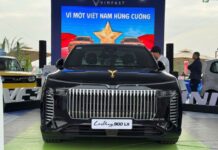



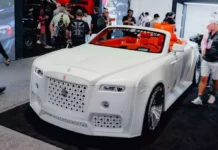
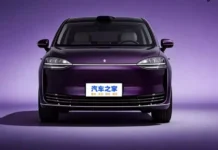
















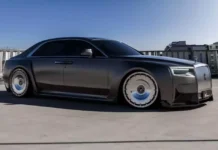


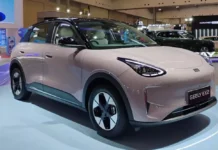





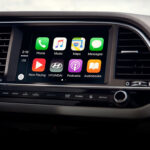
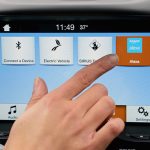
![[CAR REVIEW] The Newly Launched BMW iX3 in Vietnam: Compact, Practical, and Expensive](https://vnauto.net/wp-content/uploads/2023/10/xehay-bmwix3-01082023-9-150x150.jpg)
![[QUICK REVIEW] VinFast VF5: Extremely Affordable, Spacious, and Well-Equipped](https://vnauto.net/wp-content/uploads/2023/10/Xehay_VF5plus_21042318-150x150.jpg)
![[CAR REVIEW] User Reviews of VinFast VF 9: Stylish, Luxurious, Smooth Ride, and Perfect for Families](https://vnauto.net/wp-content/uploads/2023/10/xehay-vinfastvf9-09092023-12-150x150.jpg)


